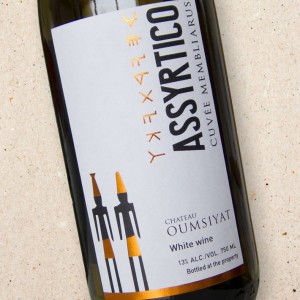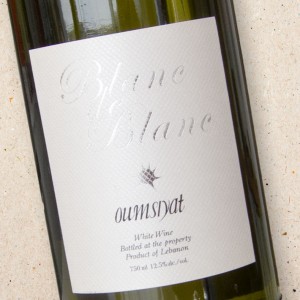Château Ksara Chardonnay Cuvée du Pape 2021
A classic Chardonnay, grown at altitude and fermented and aged, sur lies, in 50% new oak for ten months. Full-bodied, complex, fresh and creamy, the wine is the highest example of the Château Ksara's white wine making expertise. Full-bodied, layered and textured with notes of citrus, stone fruit and savoury notes underpinned with vanilla and toast.
Fermentated in a combination of new and one-year-old French oak for ten months with regular batonage (lees stirring).
Cuvée du Pape can be drunk immediately or cellared for up to 15 years, during which time it will develop more complex, tertiary characteristics that highlight the harmony of the acidity and the alcohol as well as its texture and the integration of the oak.
| RRP | £32.95 |
| Vintage | 2021 |
| Alcoholic strength | 13.5% |
| Serve with | lightly chilled with rich seafood and white meat dishes |
| Awards | The Global Chardonnay Master, Gold, 2018 |
| Country | Lebanon |
| Region | Bekaa Valley |
| Grapes | 100% Chardonnay |
| Dry/Sweet value | 2 |
| Vegetarian | Yes |
| Vegan | Yes |
| Milk | No |
| Eggs | No |
| Organic | No |
| Biodynamic | No |
Château Ksara is Lebanon's oldest winery. Its traditions can be traced back to 1857 when a group of Jesuit monks acquired the property. The Jesuits applied their knowledge of science and agriculture to plant French vines as well as developing two kilometres of Roman caves that proved ideal for the storage of wine. The Jesuits sold the winery to its current owners in 1973. Ksara is now the most modern winery in the region as well as the largest producer in the country. Their annual production is over 2.8 million bottles and they sell their wines in more than 40 countries worldwide. Château Ksara is certified ISO 9001 and ISO 2200.00 for its viticulture, production and sales guaranteeing quality and consistency year on year.
Ksara's vineyards are located in the central and western Bekaa Valley at high altitudes. The Bekaa enjoys dry summers and has the advantage of its own natural water table, courtesy of the melting snow that runs off the Lebanon and AntiLebanon mountain ranges; therefore no irrigation is needed in the vineyards. The slopes on either side of the valley and the valley itself create a unique microclimate in which the cool nights compensate for the hot summer days.












